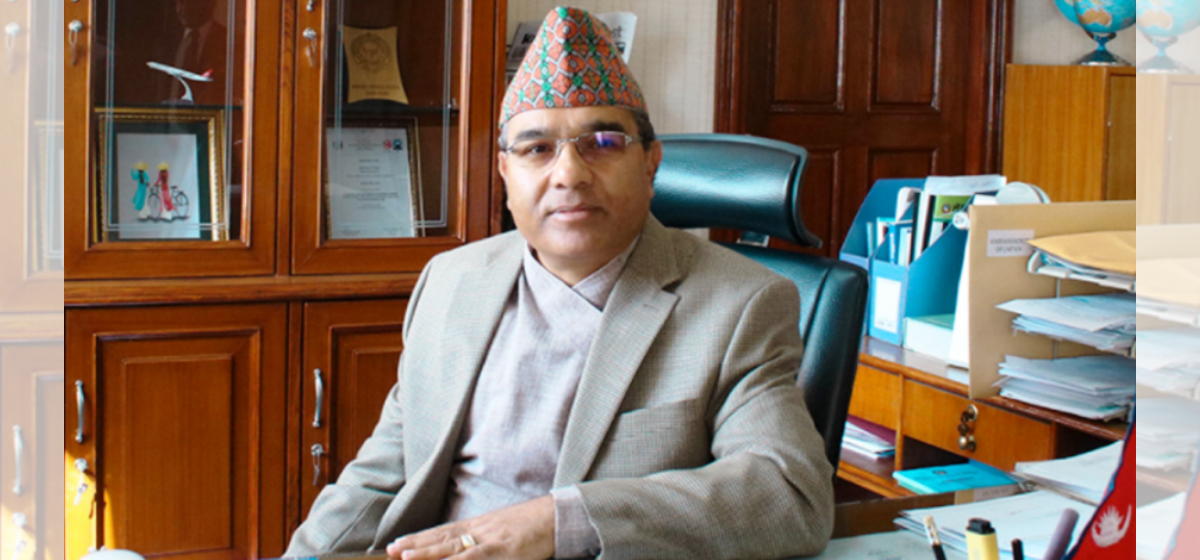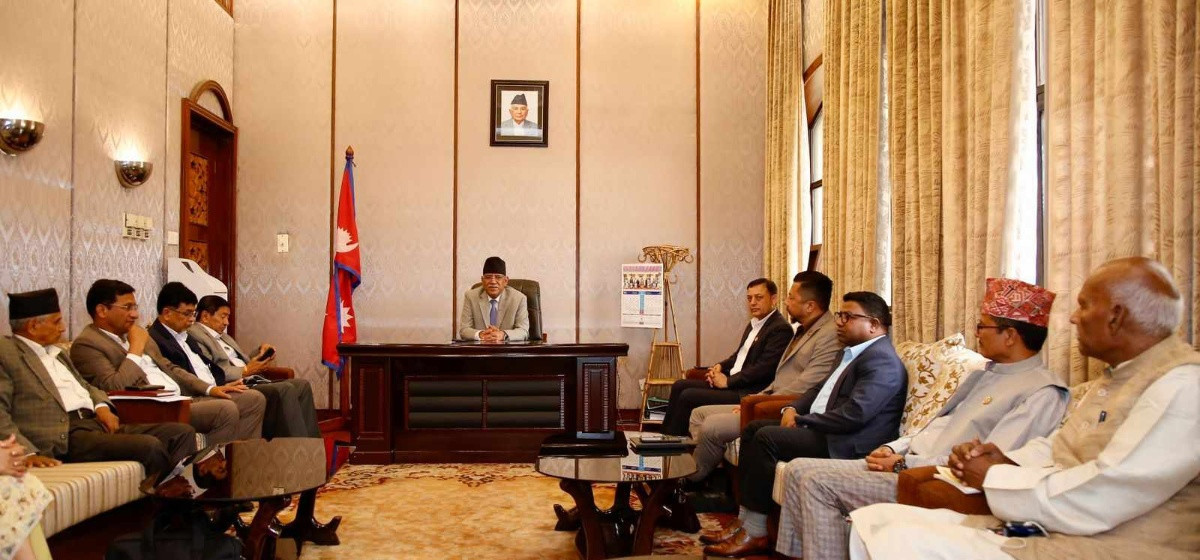KATHMANDU, June 6: Opposition parties, including the main opposition CPN (Maoist Center), have been obstructing the Parliament, demanding the formation of an investigation committee to identify thoseresponsible for the misuse of visit visas and calling for Home Minister Ramesh Lekhak to resign until the committee submits its report.
As a result, the meeting scheduled for Tuesday to begin discussions on the budget could not be held and was postponed through a notice. Wednesday’s meeting also could not take place. The agenda planned for Tuesday was carried over to Wednesday, but since the meeting was again postponed, the same agenda has now been deferred to Thursday.
With the budget agenda repeatedly disrupted, the Speaker of the House, Dev Raj Ghimire, has held discussions with chief whips and whips of both ruling and opposition parties since Tuesday—but to no avail. As the Speaker’s efforts to resolve the deadlock have proven ineffective, the parliament now seems trapped in a state of deadlock.
Opposition parties including the CPN (Maoist Center), Rastriya Swatantra Party (RSP), and Janata Samajbadi Party have demanded the formation of an investigation committee regarding the visit visa case and have called for Home Minister Lekhak’s resignation until the investigation report is submitted.
Israel’s 2 main political parties deadlocked after election

The main ruling coalition parties, Nepali Congress (NC) and CPN (UML), have rejected the demand for the Home Minister’s resignation, stating that no minister is implicated in the case. Meanwhile, the Commission for the Investigation of Abuse of Authority (CIAA) has taken the position that, constitutionally, legally, and traditionally, forming an investigation committee is not appropriate since the matter is already under their investigation.
With both sides firmly sticking to their respective positions, parliamentary sessions have been repeatedly postponed without proceeding. Chief Whip of the CPN (Maoist Center), Hit Raj Pandey, insists that the committee must be formed. He said, “First, we must be ready to form the investigation committee regarding the visit visa case. Once the committee is formed, during the preparation of the Terms of Reference (ToR), a decision will be made whether to investigate visit visa issues from 2007 BS or the current case. After the ToR is finalized, the Home Minister will need to facilitate the investigation. We are firm on this.”
Sources indicate that Home Minister Lekhak will not be forced to resign. According to sources, since Home Minister Lekhak is considered a key figure within the current coalition, the demand for his resignation has not led to any pressure from within the coalition to make him step down. As a result, a suggestion has reportedly been made to Prime Minister KP Sharma Oli that the House proceedings may need to be conducted using force.
It is also speculated that Speaker Ghimire, at the request of Prime Minister Oli, might resort to using force. The Prime Minister had previously expressed the possibility of using force to run the parliamentary sessions during a meeting of the parliamentary party. The meeting called for 1 PM on Wednesday could not proceed even after two hours, and a notice was issued to postpone it to 3:15 pm.
Since the second meeting could not be conducted by mutual agreement either, amid the uproar, preparations were underway to allow Home Minister Lekhak time to speak in the House, but this did not materialize. The chief whip of the NC, Shyam Kumar Ghimire, also confirmed this. He said, “If the House continues to be obstructed, we will consider the matter, but since the ruling party agreed to issue the notice for Wednesday’s meeting, the notice was issued.”
Meanwhile, Home Minister Lekhak had stated in the meeting of the House of Representatives’ State Affairs and Good Governance Committee held on Wednesday morning that, if given the opportunity to speak in the House, he would have clarified everything.
On the other hand, Speaker Ghimire is aware that even if discussions on the budget and related financial bills continue amidst the disruptions, they would not be effective. The Parliamentary Secretariat has indicated that if debates on the budget and financial bills begin to be affected in this manner, the time allocated for discussions will have to be reduced. Currently, the parliamentary schedule allows for ten days of debate on the Appropriation Bill and four days on the budget. However, if the House’s work continues to be obstructed, the Speaker has initiated discussions to shorten these durations. Initially, the budget debate may be limited to two days, and the duration of the Appropriation Bill debate may be reduced depending on the behavior of the opposition, according to officials from the Parliamentary Secretariat.
Since the National Assembly must be given 15 days for review, the House of Representatives is required to send the Appropriation Bill and two related bills—the Public Debt Raising Bill and the Financial Bill—back within the 15-day period. The budget must be passed by the end of Asar, so both Houses must approve the financial bills within the stipulated time. For this reason, officials state that if the House is obstructed even for a day or two, the time allocated for discussion on the budget and Appropriation Bill will have to be shortened.





































